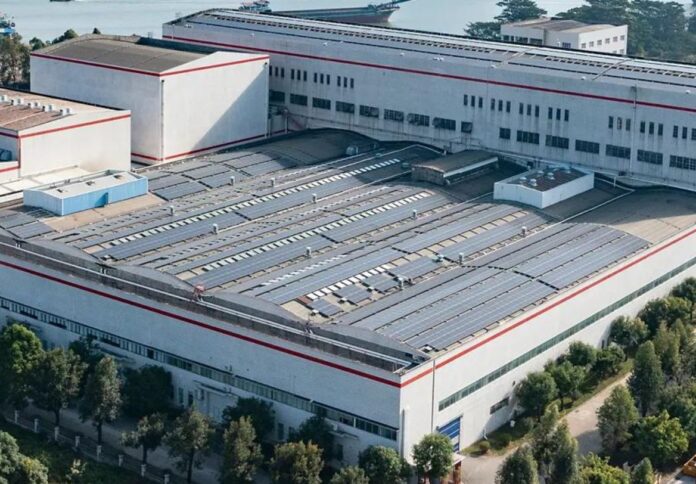
The Northern Territory’s $45 million big battery project known as the Darwin Katherine Battery Energy Storage System (DK BESS) has entered the next phase of construction work, with the completion of civil and building works.
The project is part of the NT government’s efforts to foster the adoption of renewable energy to attract new private investment and create more local jobs.
Hitachi Energy, the company delivering the build of the battery, has mobilised to the site at Channel Island Power Station.
Hitachi collaborated with local companies City Earthmoving and T&M Concreters, which have carried out the civil and foundation works for the project.
Work has begun on the new 132/11.5 kV power transformer while a new dedicated switchroom is under construction.
The site is also now equipped with the first tranche of inverter enclosures.
“Hitachi Energy is deploying our proven Virtual Synchronous Machine technology as the key technology for the DK BESS project. This is a bold step towards operating the entire Darwin Katherine network without gas-powered generators. It also means a more affordable, reliable and sustainable energy supply for Territory households and businesses,” said Bernard Norton, country managing director for Hitachi Energy.
“In delivering this project, Hitachi Energy’s Darwin-based project team, with the support of local contractor ESPEC, is advancing a sustainable energy future for the Northern Territory,” Norton added.
The 35MVA battery is expected to generate cost savings of approximately $9.8 million per annum, paying for itself within about five years from connection to the grid. The site is also expected to reduce emissions by about 58,000 tonnes per year, the NT government said in a media statement.
“The Battery Energy Storage System will reinforce the Northern Territory as the solar capital of Australia. It will store power and be the backbone of the Darwin to Katherine Electricity grid,” said Chief Minister Natasha Fyles. “The Territory Labor Government is backing Territorians, solar and lower prices to get it done.”
DK BESS is expected to provide energy for approximately 150,000 Territorians.
Selena Uibo, minister for renewables and energy, said the big battery’s construction marks a massive step in the NT government’s plan for 50 per cent renewables by 2030.
“Our electricity will be more reliable and stable, whilst maintaining affordability for Territorians which is what they expect and deserve,” Uibo said.
“Our future is renewables. This is why we are investing now in the BESS and hydrogen-powered generators so we can have clean and efficient energy to help reach our renewables and net zero emission targets.”














